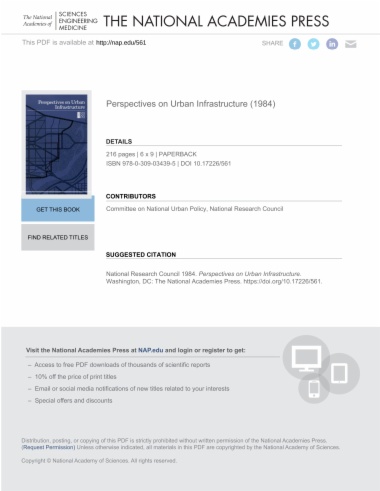

In this provocative volume, distinguished authorities on urban policy expose the myths surrounding today's "infrastructure crisis" in urban public works. Five in-depth papers examine the evolution of the public works system, the limitations of urban needs studies, the financing of public works projects, the impact of politics, and how technology is affecting the types of infrastructures needed for tomorrow's cities.